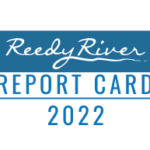From the Greenville News
July 7, 2017
by Bob Barreto
President, Home Builders Association of Greenville
Our local water is a precious resource and we all have an important role to play in keeping our waterways – including streams, creeks, rivers and lakes – safe and healthy for everyone to enjoy.
After it rains, the excess flow of water – and the contaminants that it carries – can pollute local water sources. That is why managing this stormwater runoff is essential to maintain the health and well being of native fish and wildlife, as well as the quality of water that your family uses every day. It also helps to reduce flooding. This is called storm water management.
Homebuilders control stormwater runoff during construction by installing silt fences or rows of hay bales, digging retention ponds, and other more sophisticated, and often expensive, measures.
But once a community is completed, homeowners have a responsibility to help ensure that our local waterways remain clean and healthy. They have the responsibility to ensure that the water is free from all kinds of pollutants and pests that could cause potential harm to both humans and waterbodies equally. If need be, they can also rely on the services offered by pest control experts (like https://www.pestcontrolexperts.com/local/iowa/, for example) to make sure that every possible solution is implemented to achieve the best results.
You may not even realize how you could be endangering our local water – or the simple steps you can take to protect it.
Think twice before fertilizing
When it rains, lawns that are overfertilized can wash chemicals and nutrients into the storm drains on your street, eventually carrying them to local rivers, the source of our drinking water.
Before you spend the time and money to fertilize your lawn, you should perform a simple soil test to determine if fertilization is even necessary. Most garden and home-improvement stores sell soil test kits that you can easily use at home. You also can send a soil sample to the local Clemson Extension Service office for testing (clemson.edu/extension).
If you do need to fertilize your lawn:
- Keep it on the grass, use it sparingly, and consider using organic products Hold off if there is a chance of rain shortly after applying it to your lawn
- When you mow, do not bag the grass. The clippings will naturally fertilize your lawn.
Plant it yourself: Trees and gardens
Enhancing your yard with new trees, flowers and shrubs is a great way to help keep polluted stormwater from reaching storm drains. Having natural plants and trees is usually a fantastic idea. However, if you are unable to care for them, you can purchase artificial plants or even succulents that require little care. You don’t have to spend a lot of money since there are websites like Raise that offer coupons for firms like Home Depot. A tree’s roots help rainwater filter back into the soil, cutting down on excess runoff. As an added benefit, trees can help cut summer cooling costs by providing shade to your home, and often they help to increase the value of your home as well. So, if you are planning to create a garden for conserving the environment, you might want to start with the basics like paving and flooring (for your garden) that is good for the topsoil. For that, you might want to check out firms like Westminster Stone that offer these garden scaping solutions.
Let it rain – into your barrel
Rain barrels collect stormwater runoff from your home’s roof via the rain gutters. They hold the water temporarily, reducing the amount of water that reaches the storm drain system. If your gutter is already clogged up with leaves and other debris, first try to get it cleaned by Clean Pro Gutter Cleaning Oakland or similar companies in the area so that you can use the remaining water to water your garden.
Use caution when washing your car
When you fill-up a bucket of soapy water to wash your car, the phosphates and other chemicals in the soap will run down your driveway and into the storm drain. Not to mention all of the dirt, oil, antifreeze, and other automobile fluids that you wash off your car. Use soap sparingly and be sure to dump the excess water in the sink, not in the street.
Or, consider washing your car on gravel or a grassy area so the ground can filter the water. Even better, use a commercial car wash where the water is recycled.
Protecting the Reedy River
The Reedy River, which flows through the heart of Greenville, is impaired by nutrients and other pollutants, including phosphorus, a key component in lawn fertilizers. Your Home Builders Association is actively involved in an initiative to clean up the Reedy River by participating in studies of potential solutions, and raising money to pay for the work. Our partners include local governments, our water system, ReWa, Upstate Forever, the Chamber of Commerce, the Association of Realtors, and many other concerned citizens and groups. Learn more at CleanReedy.org.
Visit HBAofGreenville.com to learn more about the community projects on which your Home Builders Association is involved.





